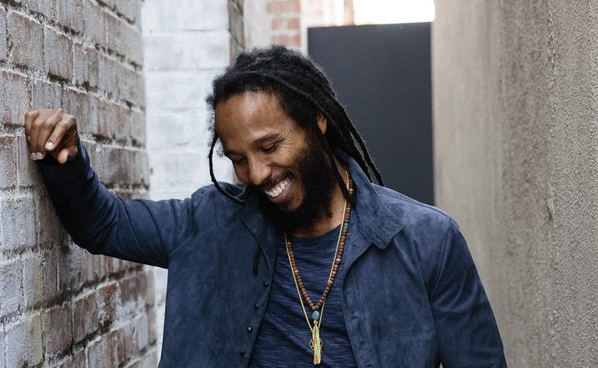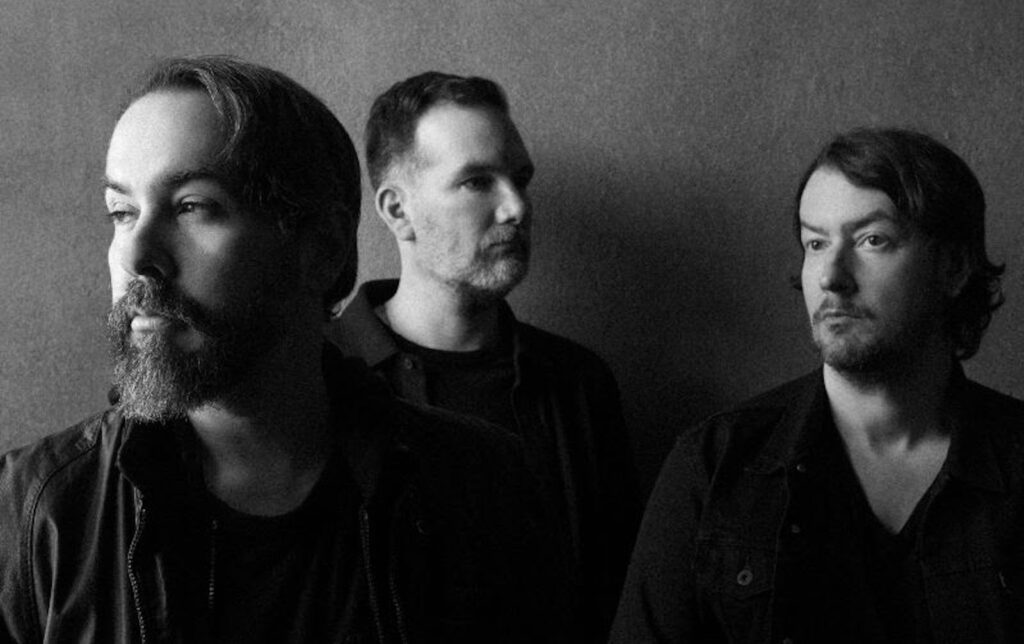2014 has already been a huge year for Ziggy Marley. His last album, Ziggy Marley In Concert, secured his sixth Grammy Award win, ahead of other reggae category nominations from Snoop Lion, Beres Hammond, Sizzla and Sly and Robbie & The Jam Masters. Typically, he is humble about the recent award.
“It feels good and we appreciate it but I don’t think about it a lot,” Marley says. “It is only a small pool of the music, it is not everyone, so it’s only a few who people get nominated. There is so much more, and it’s all up to somebody’s own opinion, so I take it with a grain of salt, you know?”
Having always pushed the boundaries beyond the traditional Jamaican reggae sound, his fifth studio LP, Fly Rasta, has many other genre influences. A truly eclectic mix of musicians have been enlisted: drummers include Motown’s legendary James Gadson (Martha Reeves) and Brian MacLeod (Sheryl Crowe); guitarists Takeshi Akimoto (Taj Mahal) and Ian ‘Breezy’ Coleman (Burning Spear); bassists Abraham Laboriel (Paul Simon), Pablo Stennett (Willie Nelson) and Dave Wilder (Norah Jones); and keyboardists Zac Rae (Lana Del Ray), Mike Hyde (Burning Spear) and Brian Lebarton (Beck). And they are just the tip of the iceberg.
“These are musicians I have known throughout my years. I have worked with some of them before on different projects. You know, when I am making a record I say, ‘Get me the best musicians out there,’ and I know some of them, so I ask specifically for Brian Macleod or Abraham Laboriel, these guys are just great musicians who bring something to the table very special, you know?”
The legendary Jamaican reggae/rocksteady toaster U-Roy has also been enlisted and features on the title track.
“U-Roy is someone I look up to. These are the fathers of our music, so you know I have the same love and honour as I have for my father. And I have always wanted to work with great legends like U-Roy.”
Spirituality is a theme Marley has explored in his music in the past. His 2006 hit, is My Religion, held a very universal message, whereas Fly Rasta, is exclusively a celebration of Rastafari. This song refers to separation of oneself, as per the biblical vow of the Nazarite, which has been adopted into Rastafari.
“When I first started my spiritual journey, it began with Rastafari. We are different from everyday people, we carry ourselves inna more disciplined way. It is where Love Is My Religion started. I have to pay homage to the seed that was planted that bring the fruit of Love Is My Religion.”
There is a strong history of the Marley siblings musical collaboration and support, and this album is no exception, with back up vocals throughout provided by sisters Cedella and Sharon Marley. It’s been some time since they recorded together as a unit, and as Marley says it “added such a great vibe to the record, it was like the finishing touch.”
The Marleys are a tight-knit family, and this musical teamwork has been going on between them since the inception of the Melody Makers – Marley, at the age of ten joined with Cedella, Sharon and Stephen Marley. Their first recording in 1979 was Children Playing in the Street, a song written by Bob especially for his children, and all royalties were donated to the United Nations during the International Year of the Child. Charity work that focuses on assisting children is a theme which has continued to run throughout Marley’s life.
“I’m Always involved with stuff like that, we have a charity where we support schools in Jamaica, educating kids. I believe children are the most important asset, if that’s what you want to call it, that we have in this world today for a better future.”
Given that Ziggy was named after the Jamaican slang term for a small spliff, it should come as no surprise that one of his numerous other non-musical projects is the promotion of roasted hemp seeds which he says are “extremely nutritious” through his Ziggy Marley Organics range, and he has produced a comic book, Marijuanaman.
His commitment to offsetting the carbon footprint of his upcoming world tour by partnering with several environmental organisations is reflected in Marley’s opening track on this new album. Don’t Wanna Live on Mars certainly seems like a love song to the planet…or is it?
“When I was writing these songs I kinda said to myself I don’t wanna tell people what the songs are about specifically, because I want it to mean whatever it means to you. Songs have their own life. It’s art, so you decide what it is.”
BY MUMMA TREES







